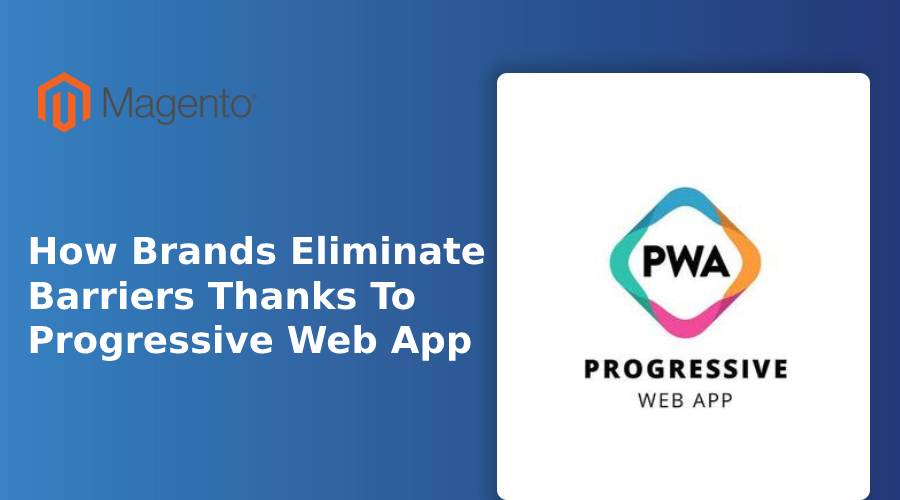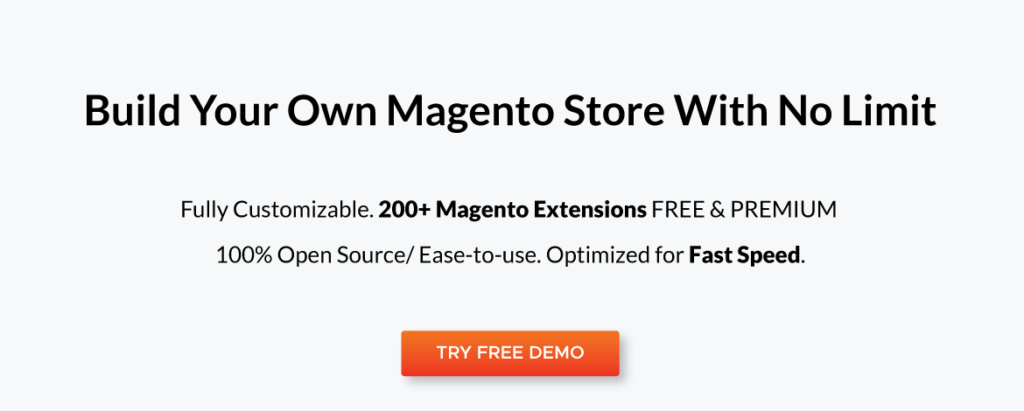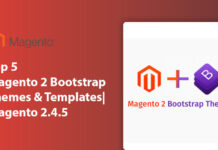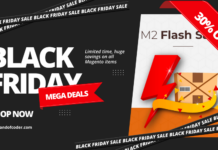
When it comes to the e-commerce world, almost all businesses from small to large encounter obstacles on the path to success. Eliminating barriers thanks to progressive web apps is considered one of the best solutions to overcome the threats to the company. They need to be adaptable in any circumstance and find out the optimal solutions to resolve their difficulties. Recently, Progressive Web App has been one of the hottest technology trends because it is able to deliver outstanding features, which can satisfy the requirements of businesses.
Table of Contents
The Important Points To Know About PWA Before Eliminate Barriers Thanks To Progressive Web App
Before moving ahead, let’s quickly understand briefly about PWAs.
1. The Defenition Of Progressive Web App
Progressive Web App (PWA) is a term used to denote a new software development methodology. Unlike traditional applications, progressive web apps are a hybrid of regular web pages (or websites) and mobile applications. This new application model attempts to combine features offered by most modern browsers with the benefits of mobile experience.
2. Outstanding Feature Of Progressive Web App
- It provides a super-rich experience: Due to modern web standards, it offers an appealing user experience
- App-like experience: while using it, you will feel native-like experiences and functionalities
- Secure: It uses HTTPS to prevent any threat and vulnerability
- Modern: thanks to the functionality like service workers, these apps are up-to-date
- Greatly responsive: PWA works best for mobile, desktop, and tablets in terms of responsiveness
- Works offline, on the low-quality network: This is most important; it runs offline and even in low-connectivity
- Linkable: It is usually shared via the link and does not need a separate installation
3 Impressive Examples of Progressive Web Apps
The best way to understand a problem is to look at its typical examples. Here are 3 well-known brands and their obvious transformation after eliminating barriers thanks to progressive web apps.
1. Alibaba

Alibaba is one of the world’s largest marketplaces based in China that serves retailers and shoppers in more than 200 countries. Launched in 2010, it is made up of small businesses in China and other locations, that offer products to international online buyers.
The Challenges: After making a survey, Alibaba realized that e-commerce mobile is the most compelling bridge to reach their customers. Thus, they decided to create a well-designed and highly functional mobile experience with a Native App. Unfortunately, Alibaba Mobile Team found that there are many drawbacks related to the Native App. For instance, users have to wait an amount of time to install an app on their browse or mobile device. So, how does the world’s leading trading platform maintain a competitive edge while delighting mobile web users?
The Results: Eliminating barriers thanks to progressive web apps is the most optimal solution for Alibaba. Their team decided to build their mobile website as a PWA for one main reason: to impress first-time visitors and repeat users alike with a fast, engaging, and reliable mobile experience. After implementing their PWA, Alibaba quickly saw some amazing results:
- 76% higher conversions across all browsers
- 14% more active users per month on iOS and 30 percent more on Android
- 4 times higher interaction rate from Add to Homescreen prompt
2. Flipkart

Flipkart is India’s largest e-commerce marketplace which was founded by Sachin Bansal in 2007. This company initially focused on book sales, before enlarging other product categories such as fashion, lifestyle products, and consumer electronics.
The Challenges: In 2015, Flipkart adopted an app-only strategy and temporarily shut down its mobile website. The company found it harder and harder to provide a user experience that was as fast and engaging as that of their mobile app. But then, Flipkart decided to rethink their development approach. They were drawn back to the mobile web by the introduction of features that made the mobile web run instantly, work offline, and re-engage users.
The Results: They decided to address via a PWA the needs of users who wanted to make purchases from mobile devices but had limited access to the Internet as well as those who were interested in the service but did not have space on their device for another mobile app. Flipkart Lite generated a large number of customers as the re-engagement rate was improved. The numbers speak for themselves.
- 60% of visits launched via the home screen icon
- 70% higher conversion compared to the previous website
- 3x longer user visits (average time spent per session extended from 70 seconds to 3.5 minutes)
- 40% higher re-engagement rate
3. Lancôme

Lancôme is a French luxury perfume and cosmetics brand that distributes products internationally. It is part of the L’Oréal Luxury Products division, which is its parent company and offers skin care, fragrances, and makeup at higher-end prices. Since mobile commerce is a growing trend, they focused on creating a faster and better mobile web experience.
The Challenges: The impediments to mobile success were many. The overall performance was too slow, as rich content – while captivating to customers on the desktop – was increasing mobile page loads. On top of this, the mobile user experience was full of friction and didn’t allow shoppers to move quickly through the purchase process. The global luxury beauty brand discovered progressive web apps for eCommerce and realized that it’s what they need to boost customer engagement in the highest competition conditions. When eliminating barriers thanks to progressive web apps will tackle whole related problems of businesses.
The Results: Lancôme’s Progressive Web App also increased conversions, mobile sessions, and engagement through push notifications and other features. Here are some key results from Lancôme’s progressive web app:
- 17% increase in conversions
- 8% increase in conversions on recovered carts via push notifications
- 15% decrease in bounce rates
- 51% increase in mobile sessions
- 84% less time taken until the page is interactive
Final Words
Those fantastic examples of big brands using Progressive Web Apps to eliminate barriers should hopefully have inspired you to do the same! The benefits of technology are numerous. Significantly faster loading times, app-like experiences, no downloads, and lower data usage. If that doesn’t excite you, how about increased conversion rates, engagement rates, and increased mobile revenue? That’s what those improvements commonly result in. If you want to eliminate barriers thanks to progressive web apps, you can refer to E-commerce development companies.
If you want to read more helpful articles like this one, check out Tigren. They are an eCommerce development company with many years of experience, and their blog offers many insightful contents. Until next time.












![[SALE OFF] Discount 30% All Premium Extensions On Christmas And New Year 2025 christmas-and-new-year-2025](https://landofcoder.b-cdn.net/wp-content/uploads/2024/12/christmas-and-new-year-2025-1-218x150.png)






